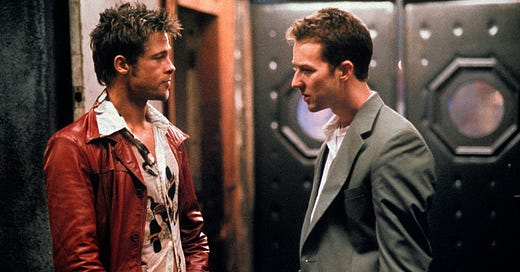You’re reading Boy Movies, a newsletter that for the month of February will focus entirely on the films of David Fincher. Subscribe and tell a friend as I embark on this project that absolutely no one asked me to embark on.
Fincher February: Week 1
Apologies for sounding like the guy who sat next to you in your Intro to Film Studies class, but David Fincher is the director who made me love movies. I don’t know if that’s an “uncool” thing to say, but I have never claimed to be cool or interesting or original. I saw The Social Network in 2010 when I was 15, about a week and some change before my dad died, and it permanently altered my brain chemistry. I’d never been so affected by a film that I felt compelled to look up the director’s name when I got home. I required no further convincing to decide that Fincher was my man for life.
This is all to say: Welcome to Fincher February! Every week for the rest of the month, I’ll be discussing entries in the David Fincher cinematic universe (the …
Keep reading with a 7-day free trial
Subscribe to Boy Movies to keep reading this post and get 7 days of free access to the full post archives.



